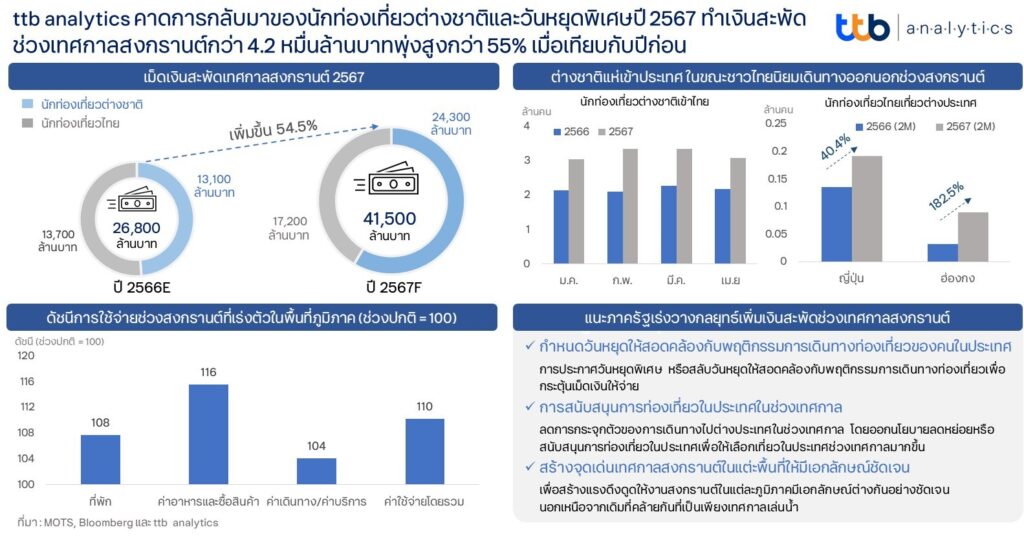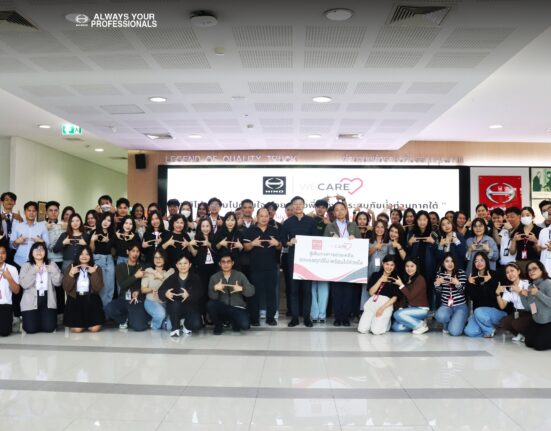Impact of Songkran Festival on Tourism Economy
Songkran isn’t just a social affair; it’s a major economic driver for Thailand. With tourism being a cornerstone of the country’s income, especially during festivities like Songkran, everyone’s curious about the financial implications. This year, Thailand pulled out all the stops, especially in bustling cities like Bangkok.
Ticy City brings insights from ttb analytics, foreseeing a significant boost in spending due to the return of foreign tourists, estimated to surpass 42 billion baht. That’s a remarkable jump of over 55% from the previous year’s figures.

This aligns with ttb analytics’ projections, suggesting a spending spree of 42 billion baht during this Songkran, predominantly fueled by international tourists’ return. Moreover, extended holidays spell good news for domestic tourism, prompting governmental efforts to capitalize on the festive season for economic gains in the tourism sector.
Songkran, often dubbed Thailand’s New Year, isn’t just a hit among international globetrotters; locals eagerly anticipate it too. The lengthy holidays, spanning at least three days, provide ample time for family reunions in hometowns. With this year’s extended holidays, encompassing both Songkran and additional public holidays, the tourism revenue boost is anticipated.

During Songkran, most Thai urbanites flock back to their roots from cities like Bangkok and its peripherals, with minimal spending increases on the return journey. However, there’s a rise in leisure travel expenses for those exploring nearby destinations or returning home and venturing to tourist spots in proximity. This uptick in spending affects regions beyond Bangkok, with average daily travel expenses up by 6.9% and overall lifestyle expenditures expected to rise by 12.9%. However, hotel spending is expected to see only a marginal increase of 2.7%, as many opt for family stays during Songkran. Yet, those opting for leisure travel, especially to prime tourist spots, may experience higher expenses.
Besides domestic travelers, foreign tourists are anticipated to contribute significantly to Songkran spending. Despite the festival traditionally witnessing a tourism boost, it may not entirely offset losses experienced during the first quarter, especially during China’s Golden Week and the European winter escape period. Nevertheless, April 2024 is estimated to welcome around 42% more tourists than the previous year, totaling roughly 3 million. This influx is poised to contribute about 24.3 billion baht to Songkran spending.

Combining spending from both Thai and foreign tourists, total Songkran spending during April 12-16 is forecasted to hit 41.5 billion baht, a hefty leap of over 55% compared to 2023. This remarkable surge is attributed to the return of foreign tourists and the extended holiday period, which amplifies tourism’s impact compared to previous years.
Moreover, spending during Songkran 2024 could surpass these figures. TTB Analytics suggests that the government can further stimulate tourism by offering tax incentives for accommodation and food expenses during the festival. Collaborations with businesses to promote domestic tourism during Songkran, encouraging Thai travelers to explore local destinations, could significantly boost tourism revenue for years to come.
#TicyCity #City #SongkranEconomic #Economy #Tourism #ttbanaly















Leave feedback about this